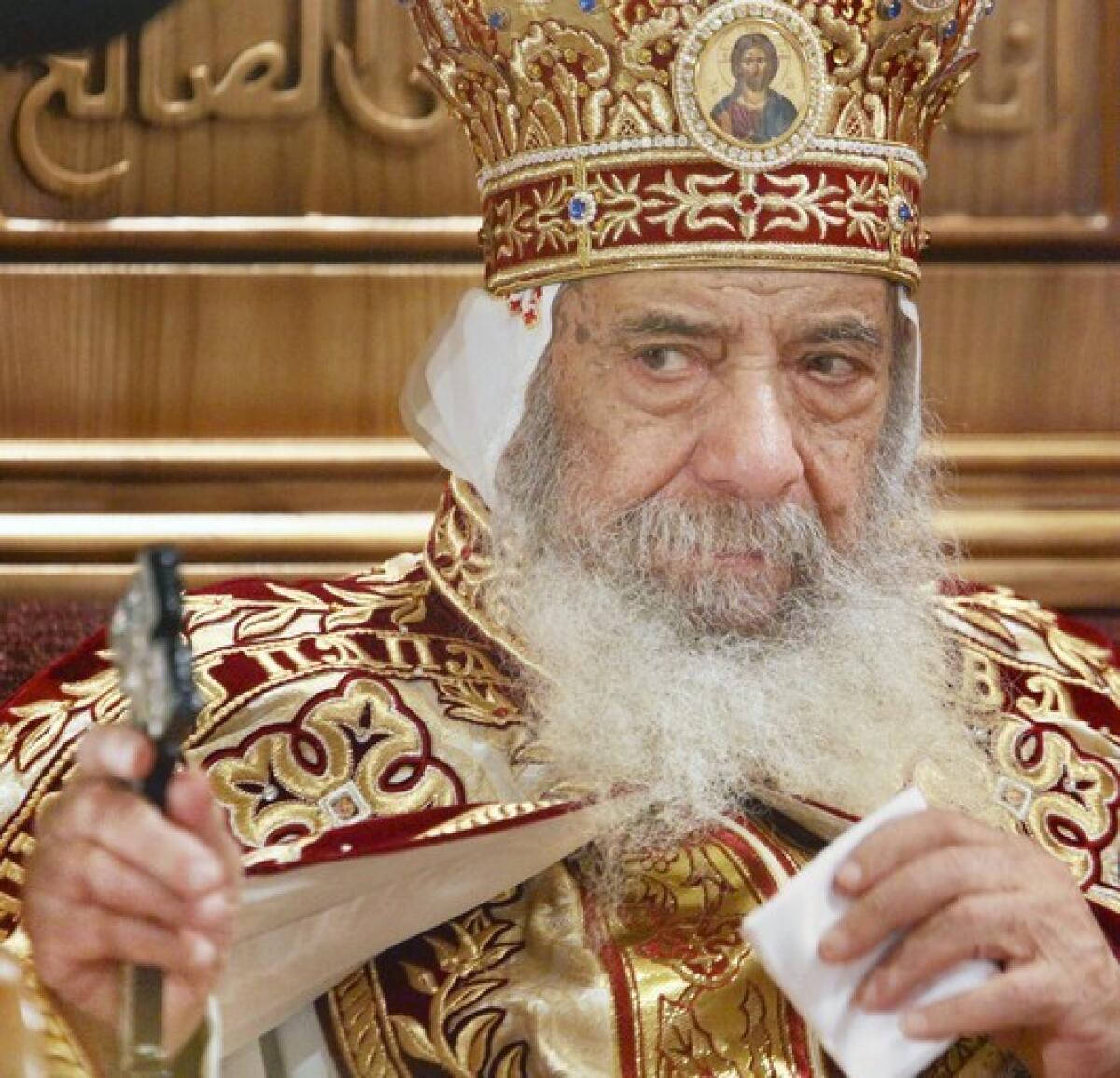Pope Shenouda III dies at 88; leader of Coptic Orthodox Church

- Share via
Reporting from Cairo —
Pope Shenouda III, the charismatic patriarch of the Coptic Orthodox Church whose shrewd grasp of religion and politics guided Egypt’s Christians through deepening animosities with Muslims, died Saturday. He was 88.
The state news agency reported that Shenouda, who led the church for four decades, had struggled with respiratory and liver ailments. There was no announcement about a successor.
A stately figure with a flowing gray beard, the pope had attempted in recent months to buttressEgypt’sestimated 9 million Copts against persecution from Islamists following the revolution that overthrew former President Hosni Mubarak.
Shenouda had watched the nation’s fabric change dramatically from secular autocratic rule to the rising prominence of the Muslim Brotherhood and ultra-conservative Islamists. Thousands of Copts fled Egypt over the last year as the church that traces its legacy to St. Mark in the 1st century tried to calm religious tensions in the Muslim-dominated country of 82 million.
The pope was dogged in protecting Coptic interests. He angered President Anwar Sadat in 1981 by not holding Easter celebrations after attacks on Christians by Islamic radicals. The pope, who blamed Sadat for not stopping the violence, was internally exiled for more than three years. He later backed Mubarak — a stance that angered Islamists — while pushing behind the scenes for broader Christian rights.
Copts felt increasingly isolated after Mubarak was toppled. Violence against them rose, including an attack by thugs and soldiers that killed at least 27 people during a Christian demonstration.
“Shenouda was different than any other Coptic pope,” said Rafik Habib, a Coptic writer. “He wasn’t shy to openly address problems faced by Christians, and he had the courage to clash with politicians.... He changed the profile of who the pope should be.”
In a move to stem religious differences, Shenouda led a Christmas celebration last year attended by leading Muslim clerics and members of the ruling military council. He told them that they had to “work with Copts as one hand for the sake of Egypt.”
A scholar and prolific writer, Shenouda was born Nazeer Gayed on Aug. 3, 1923, in the southern town of Assyut. He spent years in a monastery and became pope in 1971 after the death of Pope Cyrilos VI.
Amro Hassan in The Times’ Cairo bureau contributed to this report.
More to Read
Sign up for Essential California
The most important California stories and recommendations in your inbox every morning.
You may occasionally receive promotional content from the Los Angeles Times.











